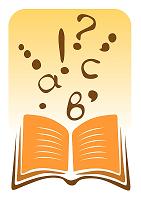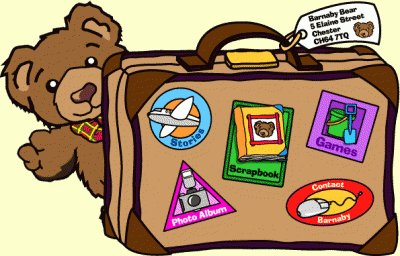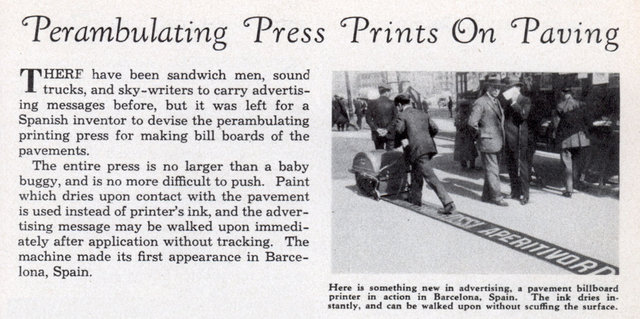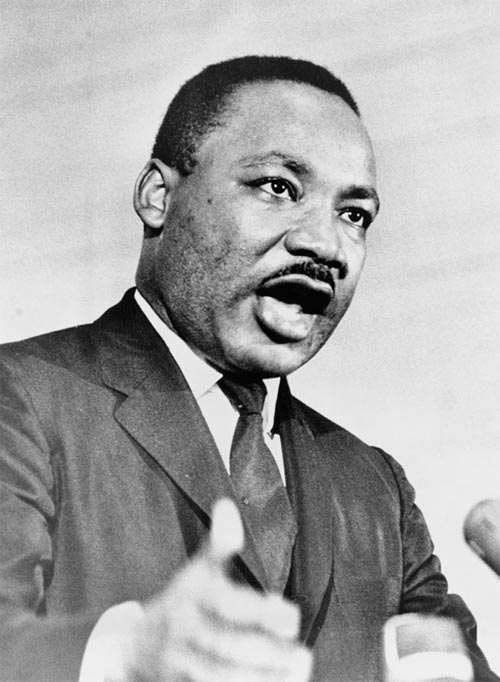ENGLISH-ENGLISH Dictionary

I know that a few a you don’t have a proper English-English dictionary at home, even though you should...
Click here to find the exact definitions of words.

I know that a few a you don’t have a proper English-English dictionary at home, even though you should...
Click here to find the exact definitions of words.

Prepare yourself for the Initial Evaluation well have next week.
Youll find quite a lot of online quizzes to help you.
Last Tuesday we had the 3er and last Spelling Bee of this school year.
Once again it was a wonderful experience.
After a previous selection that took part in every classroom, we had a group of 20 participants and at the end our true winners were: Sofía Duque Elbar (3rd), Naiara Molina Díaz (2nd) and Sergio Benítez Rodríguez (1st).
This time we also had a couple of Spelling Dictionaries: Alba González Martín and Pablo Luis de Pablo Carrión who did a great job helping all the contestants.
CONGRATULATIONS TO ALL OF YOU!!!!

Your teachers are really impressed with the poems you have created. We love them!! ![]()
In fact, we’re going to make a book with all your ideas to leave in the school library. So, those of you who haven´t written the poems yet, don’t forget to do it for next week.
We want to have a written poem of all of you!!!
Here you have a few websites in which you can see more examples of silly poems that you may enjoy reading.
This website offers a rich variety of grammar games according to grammar topics. There are grammar games like: Snakes and Ladders, Basketall, Football, Hangman, Wheel of Fortune, TV Games and more to help practice grammar.

This morning Rachael told us about this interesting on-line dictionary that can help you a lot. It is the largest and most trusted dictionary of the English language on the web.

Time flies! I know...
...And we have to go back to school tomorrow. 
But we only have 3 months left. So we have to be strong and do all our best during the next 56 days.
And remember that we should bring our best smile, that makes everything easier. 

I'm sure you all remember him as a special friend.
Alba, your classmate, has found out that Barnaby has his own website. I'm not surprised he has, he's such a unique Teddy Bear!!
Have a look at Barnaby's website and tell us what you think about it.
I want to share this fantastic short video about friendship with you to make you think on the importance of being nice with each other. That’s a great feeling!!
Have a great Easter Holiday!! 

Do you want to know the name of a few Spanish inventors??
Click here to know them learn about their inventions.

PERSONAL PRONOUNS | OBJECT PRONOUNS | POSSESSIVE ADJECTIVES (+ NOUN) | POSSESSIVE PRONOUNS |
I | me | my | mine |
you | you | your | yours |
he | him | his | his |
she | her | her | hers |
it | it | its | its |
we | us | our | ours |
you | you | your | yours |
they | them | their | theirs |
Study this table and practice using the pronouns and adjectives in the appropriate place.
Click here to do some practice on-line.
Bored? Do you want to play a game to do extra practice? (Check also de "quiz" and the "factsheets" sections).
In the UK, Shrove Tuesday is also known as Pancake Day (or Pancake Tuesday to some people) because it is the one day of the year when almost everyone eats a pancake.
In 2010 Pancake Day is on Tuesday 16 February.
What happens on Pancake Day in England?
Read on to find out why we eat pancakes on Shrove Tuesday and other facts about this special time of year.
What is Pancake Day?
Pancake Day (also known as Shrove Tuesday) is the last day before the period which Christians call Lent. It is traditional on this day to eat pancakes in England.
Why are Pancakes eaten on Shrove Tuesday?
Lent is a time of abstinence, of giving things up. So Shrove Tuesday is the last chance to indulge yourself, and to use up the foods that aren’t allowed in Lent. Pancakes are eaten on this day because they contain fat, butter and eggs which were forbidden during Lent.
When is Shrove Tuesday (Pancake Day)?
Shrove Tuesday is celebrated the day before Ash Wednesday and is therefore the final day before the commencement of Lent, a Christian festival leading up to Easter Sunday (Easter Day).
Shrove Tuesday always falls 47 days before Easter Sunday, so the date varies from year to year and falls between 3 February and 9 March.
Why do Christians call the day ’Shrove Tuesday’?
The name Shrove comes from the old word "shrive" which means to confess. On Shrove Tuesday, in the Middle Ages, people used to confess their sins so that they were forgiven before the season of Lent began.
What is Shrove Tuesday?
Shrove Tuesday is a day of celebration as well as penitence, because it’s the last day before Lent. Throughout the United Kingdom, and in other countries too, people indulge themselves on foods that traditionally aren’t allowed during Lent. Pancakes are eaten on this day because they contain fat, butter and eggs which were forbidden during Lent.
 What is an English Pancake?
What is an English Pancake?
A pancake is a thin, flat cake, made of batter and fried in a pan.
Caster sugar (superfine sugar) is sprinkled over the top and a dash of fresh lemon juice added. The pancake is then rolled. Some people add golden syrup or jam.

(Click here for a pancake recipe)
Other names for Shrove Tuesday
United Kingdom, Ireland, and Australia - Shrove Tuesday, Pancake Day or Pancake Tuesday.
Spain - Martes de Carnaval - last day of Carnival before Ash Wednesday and the period of Lent.
Brazil - Terça-feira gorda - Fat Tuesday - the final day of Brazilian Carnival.
Greece - Apocreas, which means "from the meat" since they don’t eat meat during Lent, either.
Sweden - Fettisdagen (Fat Tuesday).
USA In Catholic and French-speaking parts of the United States this day is called Mardi Gras.
Germany - "Fastnacht" (Also spelt "Fasnacht", "Fasenacht", "Fasteloven" (in the Rhine area) or "Fasching" in Bavaria.)
In France they call it Mardi Gras which means Grease or Fat Tuesday.
In Iceland the day is known as "Sprengidagur" (Bursting day).
Now check your knowledge and see how much you know about Pancake Day.

Today we are all preparing the batter for the pancakes we’ll eat on Tuesday, because tomorrow it’s PANCAKE DAY!!
Have a look at this funny and cheerful pancake film!

Every February we celebrate Valentine’s Day by giving flowers, candy and cards to those we love. We do this in honor of Saint Valentine. You may be wondering, Who is St. Valentine? Time to brush up on your Valentine’s history!
Legend has it that Valentine was a priest who served during third century Rome. There was an Emperor at that time by the name of Claudius II. Emperor Claudius II decided that single men made better soldiers than those that were married. With this thought in mind he outlawed marriage for young men in hopes of building a stronger military base. Supposedly, Valentine, decided this decree just wasn’t fair and chose to marry young couples secretly. When Emperor Claudius II found out about Valentine’s actions he had him put to death.
Another legend has it that Valentine was an imprisoned man who fell in love with his jailor’s daughter. Before he was put to death he sent the first ’valentine’ himself when he wrote her a letter and signed it ’Your Valentine’, words still used on cards today.
Perhaps we’ll never know the true identity and story behind the man named St. Valentine, but this much is for sure...February has been the month to celebrate love for a long time, dating clear back to the Middle Ages. In fact, Valentines ranks second only to Christmas in number of greeting cards sent.
Another valentine gentleman you may be wondering about is Cupid (Latin cupido, "desire"). In Roman mythology Cupid is the son of Venus, goddess of love. His counterpart in Greek mythology is Eros, god of love. Cupid is often said to be a mischievous boy who goes around wounding both gods and humans with his arrows, causing them to fall in love.
Check out other ideas for Valentine’s Day, including creative Valentine cards, Valentine party games, and many more fun activities.

Groundhog Day falls on 2nd February and is celebrated primary in the United States and Canada, although its origins are European. For years, it’s a real event in American culture because of its media impact. Each February 2, in the town of Punxsutawney (Pennsylvania, USA), the behavior of a groundhog predicts what will be the duration of winter. The belief is that if the groundhog comes out of the hole and gets to see its shadow, winter will last six weeks more. If, however, fails to see its shadow, it means that winter will soon end and that spring is near. In Pennsylvania, the official prognosticator is called Punxsutawney Phil. On Groundhog Day, he comes out of his burrow at 7.25 am. and speaks to the Groundhog Club president in "Groundhogese". His proclamation is then translated for the world. Unfortunately his proclamations are only right 39% of the time!!
What’s the name of the most famous groundhog?. Do you know what loves to eat Punxsutawney Phil? Write your answers and win a special prize...
Ask the Groundhog. Ask a question that can be answered with a "Yes" or "No" response and have fun.
Groundhog Day Word Search.
Groundhog Day official website.
GHANDI
 Ghandi is one of the most famous peace activists in the World. He was born in October 2, 1869. He was originally from India.
Ghandi is one of the most famous peace activists in the World. He was born in October 2, 1869. He was originally from India.
Ghandi experienced racism from Europeans and South Africans on a train in 1893. This experience made him realized that peace needed to be created.
Ghandi was also a very strict vegetarian. He wrote a book called “The Moral Basis of Vegetarianism”.
MARTIN LUTHER KING JR.
 Martin Luther King Jr. was born in Atlanta, Georgia on January 15, 1929.
Martin Luther King Jr. was born in Atlanta, Georgia on January 15, 1929.
He was also an American civil rights leader. His nickname is “MLK”. Martin Luther King Jr. is famous for his speech “I have a dream”.
He is the youngest person to have received the Nobel Peace Prize. He was inspired by another peace activist, Ghandi.
Martin Luther King was assassinated by James Earl Ray on March 29, 1968. He was 39 years old.
One of his famous quotes: “Even though we face the difficulties of today and tomorrow, I still have a dream!”.
ROSA PARKS
 Rosa Parks was born on February 4, 1913 in Tuskegee, Alabama. She was an American civil rights activist.
Rosa Parks was born on February 4, 1913 in Tuskegee, Alabama. She was an American civil rights activist.
On December 1, 1955 in Montgomery, Alabama, Parks, age 42 did not want to give up her seat to make room for a white passenger. She lived during a time when black people and white people in the south part of the United States were segregated (black people and white people were not equal). When Rosa Parks refused to give up her seat, she was arrested (she went to jail). This started a boycott against the Alabama public transportation system. Rosa Parks represents peace for having courage to fight.
She died on October 25, 2005. She was 92 years old. She was called “the mother of civil rights”.
One of her famous quotes: “Each person must live their life as model for others”.

Here is a reminder of what we are learning in our new "MEGA ENGLISH" book. (Click in each title to learn more about the different kind of nouns)
What is a noun?
The definition of a noun is a word that is used to define a person, animal or living object, place, thing or quality.
There are many different kinds of nouns in English.
Common Nouns - general nouns such as cat, bowl, hand, tree clock etc.
Countable Nouns - nouns that can be counted, such as car-cars, child-children etc.
Uncountable Nouns - nouns that can’t be counted, such as water, fire, air etc.
Collective Nouns - nouns that refer to a group of things or people such as family, police, worker’s union etc.
Proper Nouns - nouns that refer to a specific name of a person, corporation, company, product, such as IBM, Microsoft, Mr. David Green, Dr. Mary Jones.
Concrete Nouns - a noun that is a physical object, something that can be touched, seen, such as an animal, window, table, computer etc.
Abstract Nouns - is a noun is not a physical object, it can’t be touched physically. They are ideas and feelings such as intelligence, love, hate, bravery etc.

Even though we don’t have Art & Crafts as a subject this year, most of us love making art projects and learning about different paintings and artists.
Here you have a wonderful website full of colours, games and information about Art.
I'm sure you're going to love this: click on "My Gallery" and then on "Street Art".... Yes!!! You can make your own graffiti while listening music!! Try it.